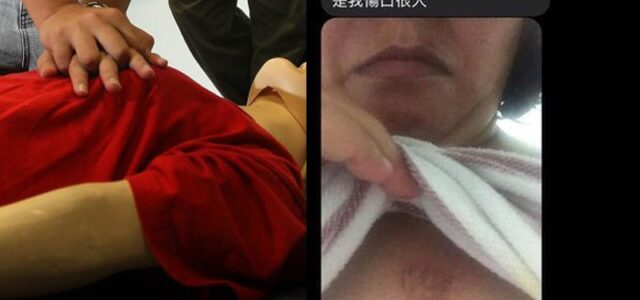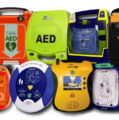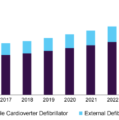


A woman in Taiwan brought a female colleague to the hospital after she fainted at work in a race against time. The latter was stopped breathing and her heart stopped beating during the transportation.
Due to a lack of access to an automatic external defibrillator (AED), the woman, Chu, spent 15 minutes doing cardiopulmonary resuscitation (CPR) on her colleague during the incident, according to Taiwan media.
“I performed chest compressions until I was fatigued, but I continued because I wanted to rescue her,” Chu posted on Facebook on Tuesday (Nov 24), adding that she had followed her colleague because she had EMT certification.
She managed to resuscitate the dying woman.
Chu’s colleague texted her in October, asking how she got wounds on her breast and arm, instead of thanking her for saving her life.
Her colleague shared a photo of a bruise on her breast to their conversation, writing: “How much force did you use? My wound is quite big.”
“Are you criticizing me for using too much strength during CPR?” Chu said, upset by her accusing tone.
Chu said that she was lucky that Chu didn’t break any of her ribs during the procedures.
Her colleague also raised concern that, like diabetes, she was worried about the wounds becoming septic and requiring amputation.
But, given the choice between her life and those injuries, Chu said, which is more important?
“You pressed on me so hard that I have heart issues,” her colleague allegedly said, adding fuel to the fire. “I can get a doctor to prove that you wounded me during CPR.”
Enraged, Chu shared her thoughts on Facebook, claiming that if her colleague sues her, everyone in the country should forget about learning first aid since some people are so unappreciative of the assistance provided.
Her comment ignited a heated discussion on Facebook, with many people siding with her.
Several people with first-aid knowledge said that bruising and fractured ribs are usual while giving CPR since strong and quick chest compressions are necessary.
Under Taiwan’s Emergency Medical Services Act, those who use emergency rescue equipment or administer first aid to save people in life-threatening situations are not responsible for indemnification.
Taiwan said last year that it plans to set up more AEDs in public places and educate more people on how to use them to lower the number of people who die from heart attacks.
According to a physician at National Taiwan University Hospital’s emergency department, a heart attack victim’s chances of survival rise by 50% if he or she is defibrillated or given CPR right away.
Source: asiaone.com








